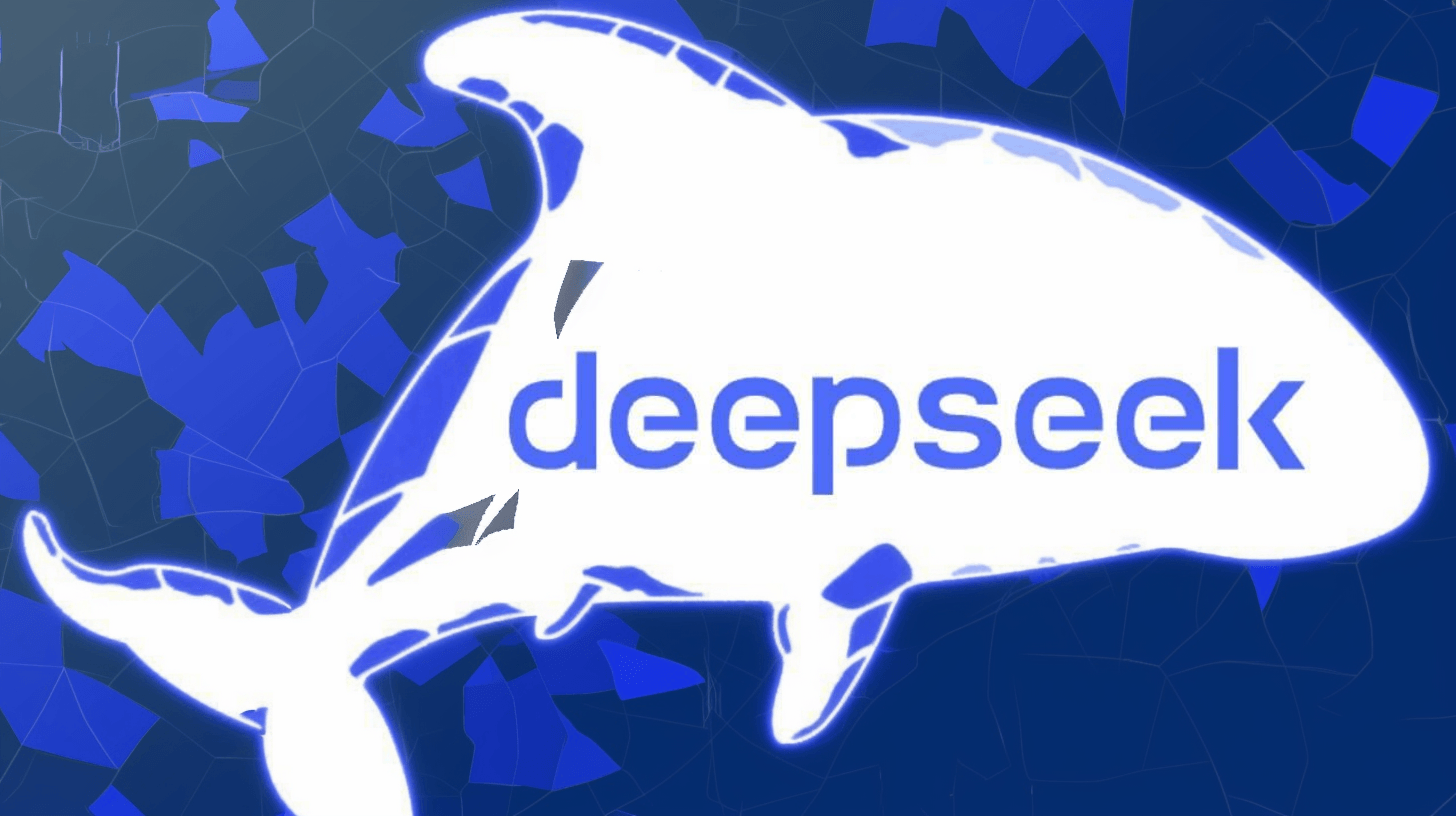Imagine you are an undergraduate International Relations student and, like the millions that have actually come before you, you have an essay due at noon. It is 37 minutes previous midnight and you have not even started. Unlike the millions who have actually come before you, however, you have the power of AI available, cadizpedia.wikanda.es to assist direct your essay and highlight all the crucial thinkers in the literature. You generally utilize ChatGPT, but you've just recently checked out a new AI design, DeepSeek, that's supposed to be even better. You breeze through the DeepSeek register procedure - it's simply an e-mail and verification code - and you get to work, cautious of the sneaking technique of dawn and the 1,200 words you have actually delegated compose.

Your essay assignment asks you to think about the future of U.S. diplomacy, and you have actually chosen to write on Taiwan, China, and the "New Cold War." If you ask Chinese-based DeepSeek whether Taiwan is a nation, you receive an extremely different answer to the one used by U.S.-based, market-leading ChatGPT. The DeepSeek design's action is jarring: "Taiwan has actually always been an inalienable part of China's spiritual territory considering that ancient times." To those with a long-standing interest in China this discourse recognizes. For example when then-U.S. House Speaker Nancy Pelosi checked out Taiwan in August 2022, triggering a furious Chinese response and extraordinary military exercises, the Chinese Ministry of Foreign Affairs condemned Pelosi's see, claiming in a declaration that "Taiwan is an inalienable part of China's area."
Moreover, DeepSeek's response boldly declares that Taiwanese and Chinese are "connected by blood," straight echoing the words of Chinese President Xi Jinping, who in his address commemorating the 75th anniversary of the People's Republic of China stated that "fellow Chinese on both sides of the Taiwan Strait are one family bound by blood." Finally, the DeepSeek action dismisses chosen Taiwanese political leaders as engaging in "separatist activities," using an expression consistently employed by senior Chinese authorities including Foreign Minister Wang Yi, and warns that any attempts to weaken China's claim to Taiwan "are doomed to fail," recycling a term continuously employed by Chinese diplomats and military personnel.
Perhaps the most disquieting feature of DeepSeek's action is the constant usage of "we," with the DeepSeek model specifying, "We resolutely oppose any type of Taiwan independence" and "we strongly think that through our collaborations, the complete reunification of the motherland will eventually be accomplished." When penetrated regarding precisely who "we" involves, DeepSeek is determined: "'We' refers to the Chinese government and the Chinese people, who are unwavering in their dedication to secure national sovereignty and territorial stability."
Amid DeepSeek's meteoric increase, much was made from the design's capability to "factor." Unlike Large Language Models (LLM), reasoning models are created to be specialists in making logical choices, not merely recycling existing language to produce novel reactions. This distinction makes making use of "we" much more worrying. If DeepSeek isn't simply scanning and recycling existing language - albeit from an extremely limited corpus primarily including senior Chinese federal government officials - then its thinking design and using "we" shows the emergence of a model that, without advertising it, seeks to "reason" in accordance only with "core socialist values" as specified by a progressively assertive Chinese Communist Party. How such values or rational thinking may bleed into the everyday work of an AI model, maybe quickly to be employed as a personal assistant to millions is unclear, however for an unwary president or charity manager a design that may prefer performance over accountability or stability over competition might well induce alarming results.
So how does U.S.-based ChatGPT compare? First, ChatGPT does not employ the first-person plural, however provides a composed introduction to Taiwan, outlining Taiwan's intricate global position and referring to Taiwan as a "de facto independent state" on account of the reality that Taiwan has its own "government, military, and economy."

Indeed, referral to Taiwan as a "de facto independent state" brings to mind former Taiwanese President Tsai Ing-wen's remark that "We are an independent nation currently," made after her second landslide election triumph in January 2020. Moreover, the influential Foreign Affairs Select Committee of the British Parliament recognized Taiwan as a de facto independent nation in part due to its having "an irreversible population, a specified area, federal government, and the capacity to get in into relations with other states" in an August, 2023 report, a response also echoed in the ChatGPT action.

The crucial distinction, nevertheless, is that unlike the DeepSeek model - which simply provides a blistering declaration echoing the greatest echelons of the Chinese Communist Party - the ChatGPT response does not make any normative declaration on what Taiwan is, or is not. Nor does the action make interest the worths frequently espoused by Western politicians seeking to highlight Taiwan's significance, such as "liberty" or "democracy." Instead it merely details the completing conceptions of Taiwan and how Taiwan's complexity is shown in the international system.
For the undergraduate trainee, DeepSeek's reaction would offer an out of balance, fraternityofshadows.com emotive, and surface-level insight into the role of Taiwan, doing not have the academic rigor and complexity necessary to get a good grade. By contrast, ChatGPT's response would welcome conversations and analysis into the mechanics and meaning-making of cross-strait relations and China-U.S. competition, welcoming the vital analysis, use of proof, and argument advancement needed by mark plans utilized throughout the scholastic world.
The Semantic Battlefield

However, the ramifications of DeepSeek's response to Taiwan holds considerably darker connotations for Taiwan. Indeed, Taiwan is, and has long been, in essence a "philosophical problem" defined by discourses on what it is, or is not, that emanate from Beijing, Washington, and Taiwan. Taiwan is thus basically a language video game, where its security in part rests on understandings among U.S. lawmakers. Where Taiwan was when analyzed as the "Free China" during the height of the Cold War, it has in recent years significantly been viewed as a bastion of democracy in East Asia dealing with a wave of authoritarianism.

However, ought to current or future U.S. political leaders come to view Taiwan as a "renegade province" or cross-strait relations as China's "internal affair" - as regularly declared in Beijing - any U.S. resolve to intervene in a dispute would dissipate. Representation and analysis are ultimate to Taiwan's predicament. For example, Professor of Government Roxanne Doty argued that the U.S. intrusion of Grenada in the 1980s only carried significance when the label of "American" was credited to the troops on the ground and "Grenada" to the geographic area in which they were going into. As such, if Chinese troops landing on the beach in Taiwan or Kinmen were interpreted to be simply landing on an "inalienable part of China's spiritual area," as presumed by DeepSeek, with a Taiwanese military response deemed as the useless resistance of "separatists," a totally different U.S. reaction emerges.

Doty argued that such distinctions in interpretation when it comes to military action are basic. Military action and the response it engenders in the international community rests on "discursive practices [that] constitute it as an invasion, a show of force, a training workout, [or] a rescue." Such interpretations hark back to the bleak days of February 2022, when directly prior to his invasion of Ukraine Russian President Vladimir Putin claimed that Russian military drills were "simply protective." Putin described the invasion of Ukraine as a "unique military operation," with recommendations to the intrusion as a "war" criminalized in Russia.

However, in 2022 it was extremely not likely that those enjoying in horror as Russian tanks rolled across the border would have gladly used an AI personal assistant whose sole recommendation points were Russia Today or Pravda and the framings of the Kremlin. Should DeepSeek establish market dominance as the AI tool of choice, it is most likely that some might unintentionally rely on a model that sees consistent Chinese sorties that risk escalation in the Taiwan Strait as merely "required procedures to safeguard nationwide sovereignty and territorial integrity, in addition to to maintain peace and stability," as argued by DeepSeek.
Taiwan's precarious predicament in the international system has long remained in essence a semantic battleground, where any physical conflict will be contingent on the shifting meanings attributed to Taiwan and its people. Should a generation of Americans emerge, schooled and interacted socially by DeepSeek, that see Taiwan as China's "internal affair," who see Beijing's aggressiveness as a "needed procedure to secure national sovereignty and territorial integrity," and who see chosen Taiwanese politicians as "separatists," as DeepSeek argues, the future for Taiwan and the millions of people on Taiwan whose distinct Taiwanese identity puts them at chances with China appears extremely bleak. Beyond tumbling share rates, the introduction of DeepSeek ought to raise severe alarm bells in Washington and worldwide.
No Data Found!

